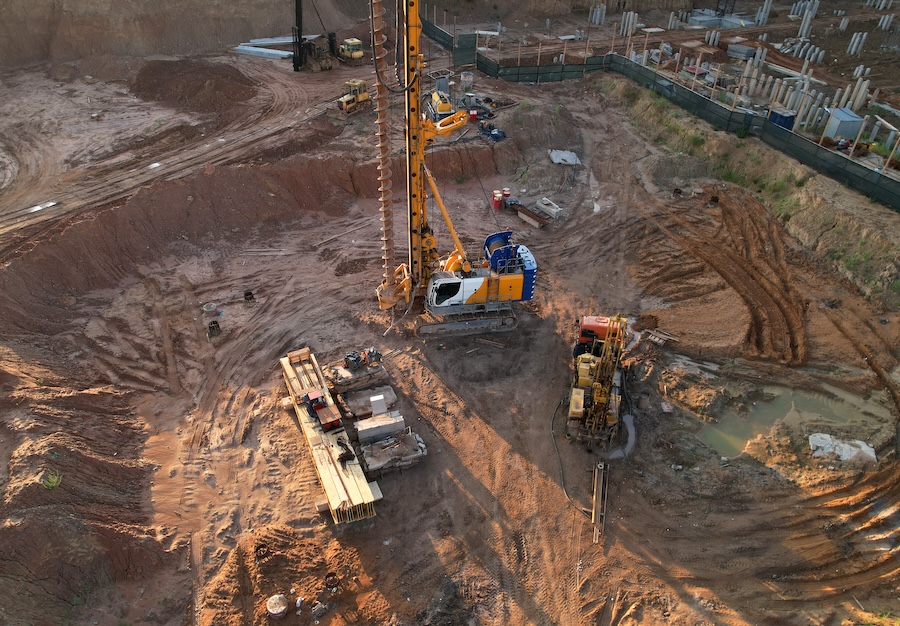Consulting Engineers Johannesburg: Specialist Engineering Providers for Large-Scale Projects
Wiki Article
An Extensive Summary of the Key Services Supplied by Consulting Civil Engineering Professionals in Modern Building
Consulting civil engineering specialists are important to the success of contemporary construction tasks, using a complex collection of solutions that attend to numerous difficulties. From performing detailed website evaluations and expediency studies to making certain conformity with rigid regulative structures, these experts prepared for risk-free and sustainable advancement. Their experience expands to structural design and project administration, which are important for attaining cost-effective and timely end results. As the intricacy of building projects remains to evolve, understanding the complete range of solutions they offer becomes increasingly crucial for stakeholders. What implications does this have for the future of building techniques?Website Evaluation and Usefulness Research Studies
When starting any kind of building and construction job, comprehending the website's characteristics is critical, as it directly affects the expediency and style of the development. Website evaluation and feasibility researches are important components of the pre-construction phase, making it possible for stakeholders to make educated choices. These studies entail a thorough examination of the physical, ecological, and regulative aspects of the website.
By incorporating these elements, civil design experts can supply an all natural view of the website's stability for the intended growth. Eventually, extensive website assessments and usefulness studies lay the groundwork for successful job execution, reducing risks and optimizing source allocation.
Structural Layout and Evaluation
Following an extensive site assessment and feasibility study, the next crucial stage in the building and construction procedure is structural design and evaluation. This necessary solution includes the advancement of structural systems that make certain the security, longevity, and financial feasibility of a project. Consulting civil engineers make use of innovative techniques and software to assess loads, stresses, and material properties, making certain that designs abide with relevant codes and requirements.Architectural layout includes numerous components, including beams, columns, structures, and bearing walls. By using concepts of technicians and product science, engineers develop structures that can endure ecological forces such as wind, seismic task, and snow tons. The analysis stage involves careful computations to forecast the behavior of these structures under various problems, guaranteeing they can perform as planned throughout their lifespan.
Furthermore, speaking with designers collaborate closely with engineers and various other stakeholders to integrate architectural elements visually and functionally. The deliverables commonly consist of thorough drawings, requirements, and detailed records that facilitate the building procedure. Ultimately, effective structural style and evaluation are essential in decreasing threats, optimizing resources, and accomplishing successful task outcomes in contemporary construction.
Task Management and Coordination
Effective job administration and control are important elements of successful civil design services, making certain that building and construction jobs are delivered on schedule, within spending plan, and to the called for top quality requirements. Consulting civil engineers play an important function in coordinating different job aspects, from initial preparation via to predict completion. This includes not just the technical elements of style and building and construction however also the strategic monitoring of timelines, stakeholders, and sources.
In addition, civil engineering consultants emphasize the importance of documents and reporting throughout the project lifecycle - geotechnical engineering in south africa. By keeping exact documents, they make sure transparency and accountability, which cultivates depend on among all parties included. Ultimately, efficient project management and control lead to enhanced project end results, straightening with customer expectations and adding to the total success of the construction undertaking
geotechnical engineering in south africa
Regulatory Compliance and Permitting
Successful task administration lays the groundwork for attending to regulatory conformity and permitting requirements in civil design tasks. Making sure adherence to neighborhood, state, and government policies is crucial for the effective implementation and conclusion of any type of building and construction undertaking. Consulting civil engineering specialists play an essential function in browsing the facility landscape of regulative structures and permitting procedures.
These professionals are fluent in zoning legislations, developing codes, environmental policies, and security requirements that regulate building methods. They perform comprehensive evaluations to identify all relevant policies, making certain that tasks follow necessary legal demands. By collaborating with governmental companies and stakeholders, speaking with engineers assist in the permitting process, streamlining approvals and reducing delays.
Furthermore, they prepare and submit the requisite documents, such as site strategies, ecological influence evaluations, and design records. This proactive approach not just cultivates compliance yet also improves project usefulness and sustainability. Ultimately, reliable regulatory conformity and allowing are important components of an effective civil design project, guarding both the atmosphere and public well-being while contributing to the overall stability and success of building efforts.
Lasting Design Practices
Sustainable style techniques are progressively acknowledged as important components in civil design, with an emphasis on minimizing environmental influence while maximizing source efficiency. These techniques include a variety of strategies targeted at advertising environmental balance and lowering the carbon impact of building and construction jobs.One key element of sustainable design is the integration of renewable resource resources, such as solar and wind, into building layouts. This not only decreases reliance on nonrenewable fuel sources however also enhances long-term cost financial savings. In addition, making use of lasting materials, consisting of recycled or quickly eco-friendly sources, plays a considerable role in minimizing waste and saving natural sources.
Water administration methods, such as rainwater harvesting and effective irrigation systems, are additionally important in lasting style. These techniques assist in minimizing water usage and securing neighborhood water communities. Additionally, eco delicate site preparation makes sure marginal interruption to the all-natural landscape and advertises biodiversity.
Consulting civil engineering professionals are crucial in executing these sustainable layout practices. Their competence enables the execution of ingenious remedies that straighten with both governing needs and client goals, inevitably adding to a more lasting developed setting.
Final Thought
In recap, consulting civil design experts provide crucial solutions that underpin the success of contemporary construction projects. With careful site evaluations, cutting-edge architectural design, reliable job monitoring, adherence to regulatory requirements, and the application of lasting techniques, these professionals add to the production of safe, reliable, and ecologically liable developments. The integration of these vital services not just boosts job end results however additionally advertises a lasting future in the building industry.Effective job management and control are crucial parts of effective civil engineering services, ensuring that construction projects are supplied on time, within spending plan, and to the called for top quality standards. Consulting civil engineers play a critical duty in coordinating numerous job elements, from initial preparation through to project completion. Inevitably, skillful job management and control lead to boosted task outcomes, straightening with client assumptions and adding to the total success of the building venture.

Report this wiki page